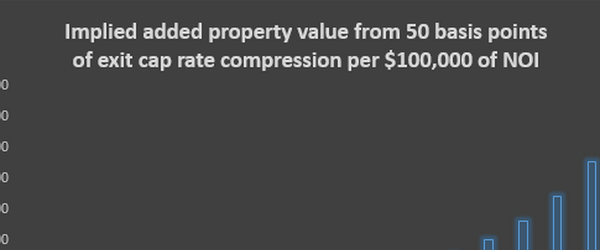Conventional portfolio theory suggests that international investing can help reduce the risk of property portfolios. For example, a study by Schroders shows very little relationship between investment performance of UK retail, office and industrial investments and overall property investment performance in Ireland, France and Netherlands.
International investing can not only help reduce risk but also increase returns, as many countries may offer more compelling property market demand-supply fundamentals and faster economic growth, and therefore, higher appreciation and income returns compared to an investor’s home country.
Investors should pursue portfolio diversification and risk minimization strategies as the global and most local economies face uncertain times. There are several fast moving forces that can at any time affect the economy globally and locally, as well as local currencies, interest rates, and eventually local property market performance. Prudent and strategically planned international property investing can help face the major challenges of an uncertain economic environment in a way that will keep yields and capital returns from property investments at desirable levels.
With the European Monetary Union and the establishment of the same currency in many European countries one of the major risks of international property investing, that is the currency exchange risk has been eliminated, at least for the members of the Euro zone. Furthermore, the lifting of significant restrictions and barriers to cross-country investing and property ownership has also reduced the risk of international investment in this zone. In addition, many countries outside of the Euro zone are not only lifting barriers to foreign investment but are also adopting incentive programs aiming at attracting foreign investment.
International property investing makes a lot of sense not only from a risk-minimization point of view. It also makes sense from a return-enhancement point of view. The argument is that any individual country’s property is only small fraction of global property. For example according to a study by Schroders the UK property market is only 10% of the global property market. Thus, by investing only in domestic property many highly profitable property investments may be missed. Property markets in many countries offer higher investment returns than the US and the UK because on one hand they are less mature, less transparent and less efficient and the other hand they are growing at considerably faster rate. Some examples include Poland and Bulgaria that just entered the European Community and their property markets are really taking off.
Selective international property investments targeting the right locations and developments can prove highly profitable. www.WhitneyDevelopment.com argues that there are several undervalued markets around the globe, such as the coast of Spain, Florida, Costa Rica, Warsaw, and even Sidney that offer highly profitable residential investments.
Additional benefits often sighted for international investing include opportunities of reduction of personal taxes while combining business with pleasure, that is, investing with vacations and international travel.
Schroders points to the “convenience” of international investing in indirect investment vehicles as the existing investment infrastructure has evolved to a point that it allows investors to invest in property without constructing property portfolios, but by taking advantage of existing investment venues provided through listed property companies and large fund management houses across Europe





































Comments